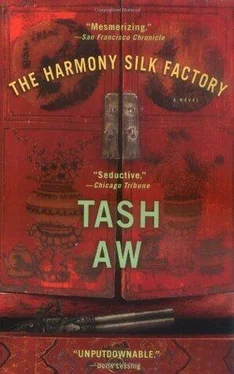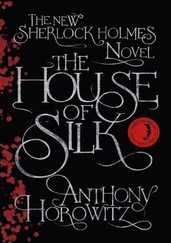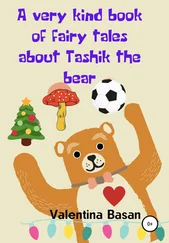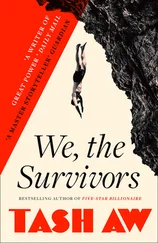On these trips Johnny began to feel a swelling sense of duty. Not only was he working to cement the future of the shop, he was imparting the word of the Party. True, this wasn’t quite the same as hand-to-hand combat in the jungle, but representing the Party in his way was surely more noble and demanding. His way required cunning beyond that of a simple soldier. It required charisma and intelligence and, above all, the ability to read and write. In this respect Johnny had became superior to the other men, for he was now armed with literacy. On each journey to the outlying villages he took with him The Communist Manifesto in English, together with a pocket dictionary he had found in Tiger’s library. He also took an exercise book in which he wrote out all the words he did not understand. Fraternity. Absolutism. Antagonistic. Jurisprudence. He wrote these down on one side of the page, and on the other he wrote out the meanings of the words in Chinese, simplifying and paraphrasing them to facilitate the memorising process (Proletariat: Me). Then he simply looked at the lists of words, learning them by heart. As he cycled along the uneven tracks, veering to avoid the rocks and the potholes and craters carved out by the floods and the droughts, he spoke the English words aloud, letting the Chinese translations echo silently in his head. At first they sounded strange and fascinating. Sometimes his voice seemed not to belong to him — he did not recognise the person who made these wonderful noises. But soon he grew to love these sounds. He loved feeling the words form at the base of his throat and then well up in his mouth before dancing in the quiet jungle air.
When at home, he began to creep more frequently into Tiger’s library. For a long time, this was a place which had intimidated and mystified him, but now it began to feel warmer. Its allure became stronger and less forbidding. But which ones should he read? They were still indistinguishable from one another. He could by now read most of the words on the spines, but the names — they were names, weren’t they? — remained shadowy and foreign. Once, he ran his fingers along the spines of a row of guava-coloured books, feeling the indented gold letters with his fingertips. Perhaps the touch of his flesh against the printed letters would suddenly reveal all kinds of hidden secrets. He came away, breathlessly, with A Choice of Shelley’s Verse and something by Dornford Yates. Those two books kept him busy for many weeks. He filled three whole exercise books with lists of new words which would stay with him for the rest of his life. As an old man he would often quote Shelley, muttering under his breath if he thought no one was listening. The fitful alternations of the rain this, the Deep’s untrampled floor that. I don’t think he ever fully understood the meaning of it all.
From time to time, though, he still felt a shiver of excitement when he thought about the dark, rough life of a soldier like Gun. He had once visited the home of a small-village Communist lieutenant and spied, through a half-open door, a rifle propped up against the wall. It leant brazenly on the wooden slats like a household implement to be picked up and used casually at any time. That night Johnny slept in the next room, not ten feet from the gun. He dreamt he was walking barefoot through the night-clad jungle holding that same rifle. He walked into a clearing lit by a fire. It smelt of meat and mud. The men were laughing, their heads thrown back, their throats open wide. The gun was light in his hands as he shot each one of them in the head. When he woke he looked at his hands. They were strong and calm, but his pulse was throbbing heavily.
SOME PEOPLE ARE BORN with a streak of malice running through them. It poisons their blood forever, swimming in their veins like a mysterious virus. It may lurk unnoticed for many years, surfacing only occasionally. Good times may temporarily suppress these instincts, and the person may even appear well intentioned and honest. Sooner or later, however, the cold hatred wins over. It is an incurable condition.
I can pinpoint the exact moment when I knew for certain that my father was afflicted with this terrible disease. I had just left school and announced my intention never to return to the Valley. I was eighteen. I did not want to see the Harmony Silk Factory again. Father did not flinch at my words; he merely nodded and said, “I will take you to your destination.” It was raining heavily as we drove through Taiping, where he was to drop me off at the bus station. We drove through the Lake Gardens, along avenues lined with umbrellas of drooping jacaranda. Raindrops found their way through the gaps in the barely opened windows and fell lightly on my arms. Without warning, Father slowed to a halt and got out of the car. He walked onto the grass and stood in the rain, gazing out at the silvery lakes. I had no desire to get wet, so I remained resolutely in the car; I had no idea what he was doing. At last I could bear it no longer and, holding a spare shirt over my head, ran towards him. I stood at his side for a while and suggested that we move on.
He had a curious expression on his face, as if concentrating on something in the distance. “Do you know,” he said quietly as if speaking to himself, “the word ‘paradise’ comes from the ancient Persian word for ‘garden.’ ” I did not reply; I tried to remember if there had been an article on this subject in the latest Reader’s Digest. “The Persians had beautiful gardens. They filled them with lakes, fountains, flowers. They wanted to re-create heaven on earth.” His eyes blinked as the wind blew fine raindrops into his eyes. I looked into the distance, trying to locate what he was looking at. I thought, Perhaps my father is capable of appreciating beauty; perhaps he is not completely black-hearted and mean after all. In the midst of the downpour I began to feel guilty that I had judged him harshly all these years. I was scared, too — scared of discovering someone I had never known, a different father from the one I had grown up with. But then I heard a sharp slap, and saw that he had swatted a mosquito on his neck. A small black-and-red smudge appeared below his jowl where he had caught the insect. “Bastard,” he spat as he walked back to the car. His voice was as hard and cold as it always had been, and his eyes were set in anger. As we drove away I knew that I had been mistaken. That tender moment had been a mere aberration; it changed nothing. My father was born with an illness, something that had eaten to the core of him; it had infected him forever, erasing all that was good inside him.
Why I did not inherit his sickness I do not know. Someone told me at Father’s funeral that sons never resemble their fathers. What passes from elder to younger lies far beneath the surface, never to be seen or even felt. Perhaps this is true, but if the inheritance remains undiscovered, how are we to know it exists at all? I am merely thankful that I have never known any of my father’s traits in myself. I could not, in a thousand years, comprehend the crimes he committed.
It did not take Johnny long to become known across the Valley. As Tiger’s right-hand man he automatically gained the respect of the people he met, and as Tiger became more withdrawn, Johnny’s presence was felt more keenly than ever. People even began to seek Johnny before Tiger if they had any information to share or money to give. It was during this flowering of confidence that Johnny went to Tiger with a proposal.
“I want to give a lecture,” Johnny said. “The kind you used to give, open to all. I have been reading, you see. Books.”
Tiger’s eyes shone with pride. This boy was now truly a man.
“Nothing too big,” Johnny continued. “I want to tell them about the books I have read. About idealogy.”
Читать дальше
Конец ознакомительного отрывка
Купить книгу












